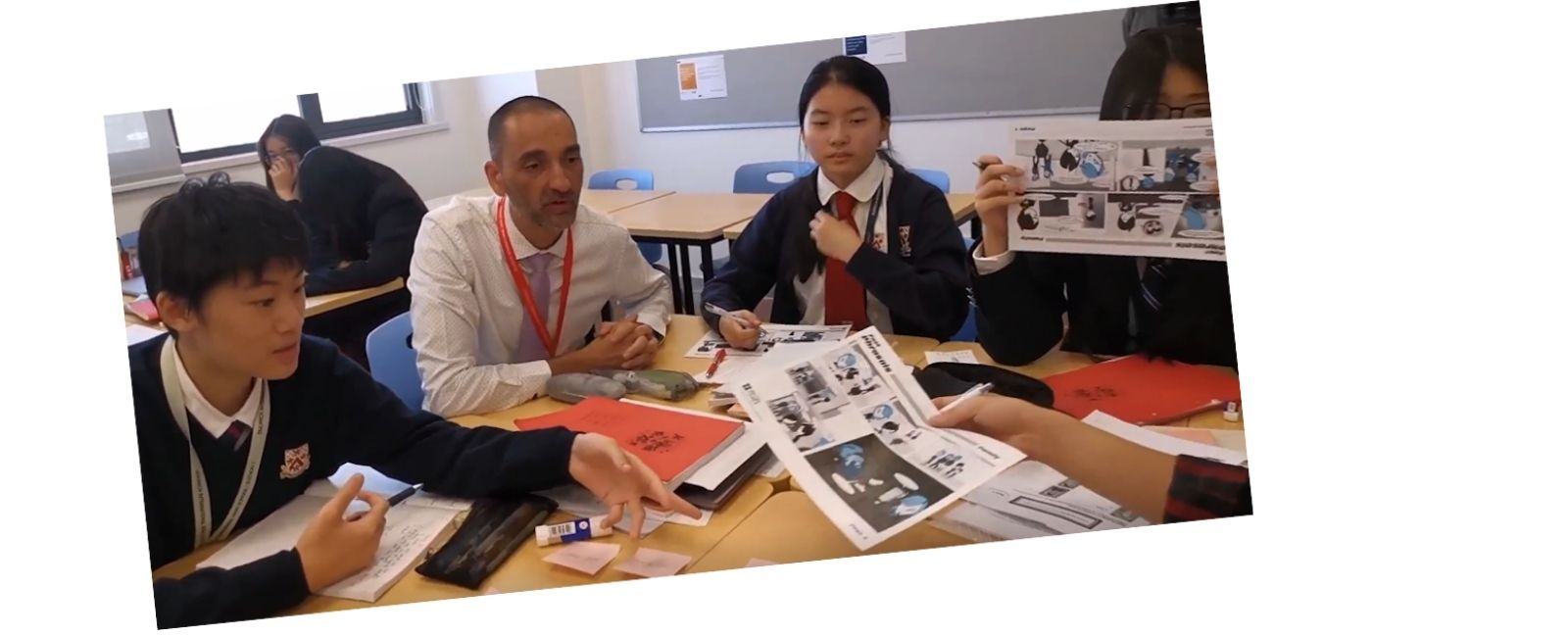DHSZ Open Class Ep.02-English

“No matter how much you love your family, they can be annoying sometimes. Think about that moment.” This is the question raised to begin today’s class.
Hope you enjoyed the DHSZ Open Class Series! In this week’s episode we come to the exciting English class by Mr. Tony Qureshi, our head of EAL, and we are sure that you will gain a lot of brilliant insights from this class about learning English!
What Is the Class About
This class is designed to support students with their informal writing task through discussing family life and work. Mr. Qureshi led the students to talk about their family life, relationships and friends by applying phrasal verbs in context. Using phrasal verbs allows students to express their feelings and talk about their experiences freely in a casual and informal way. Being able to do this is a crucial skill needed to succeed in both student’s IGCSE ESL speaking and writing exam components. This lesson provided the perfect opportunity for students to learn new ways of speaking and writing using an informal register.
Students’ Homework (By Jingjing Y, Rick C, Dora L)
Let's take a look at how DHSZ's English classes help the students speak with confidence.
Teaching Style
Mr. Qureshi always encourages students to think and share their ideas with each other, using role play and various activities. He places great emphasis on interaction with his students. He explained that “working in pairs and groups is a productive way to consolidate learning and, in this case, understanding of phrasal verbs and when to use them. Chunking lessons ensures everyone stays engaged and by providing choice keeps students motivated and active. For example, students had a choice of whether to watch and listen to the video or take the challenging option of listening only. This ensured all students were appropriately challenged during this task. Reviewing and reflecting on the phrasal verbs collected in groups benefited all as any missed were quickly added by other members of the team. The final writing task was the perfect platform for students to showcase their learning and to write about their family experiences using the new language learned. This was later recorded as a Flipgrid video in which students could then listen and watch others talking about their families.”


Education Philosophy
Mr. Qureshi works closely with other departments and provides excellent examples of how teachers can scaffold language support to maximise our students’ learning, implementing scientific language learning approaches in all subjects. He is driven and passionate about working in collaboration with key staff across the school, whether sharing ideas, leading professional learning, or co-teaching in different departments. He leads a bi-annual, 16-hour professional learning course in language, literacy and learning to staff who are keen to upskill in research-based pedagogy for working with second language learners. Strategies and ideas are implemented and reflected upon and then shared across departments. Mr. Qureshi is passionate about his role at DHSZ and has guided many of our colleagues to lead EAL professional learning school-wide.”
What is the English Learning in DHSZ
For our students, English is not only an important subject but an essential skill to master.
Mr. Qureshi told us that “developing and mastering both social and academic English is a must. It is crucial that all our teachers believe that they are not only responsible for teaching the content of their subjects but also the language. We believe that every teacher at DHSZ is a language teacher, and it is everyone’s responsibility to explicitly teach language. Our students come with various needs and language proficiency levels. Our success relies on this explicit focus on language in all lessons across the school. Each department has dedicated EAL champions who support in advocating for EAL best practices in their departments. We have a dedicated group of students who meet weekly to share ideas for promoting more English use around the school through hosting events and competitions, sharing displays and videos, and publicly speaking in assemblies to promote upcoming events or sharing tips on English language learning.
"Top tips to improve your English include reading regularly, both academically and for pleasure, spending time reviewing and revising vocabulary and content from lessons, asking questions if you are unsure, and most importantly, speaking about your learning at every given opportunity. Research suggests that speaking is the key to improving your English and overall learning (Gibbons, 2015).”
Reference
Gibbons, P. (2015). Scaffolding Language Scaffolding Learning: Teaching English Language Learners in the Mainstream Classroom (2nd ed). Heinemann.





